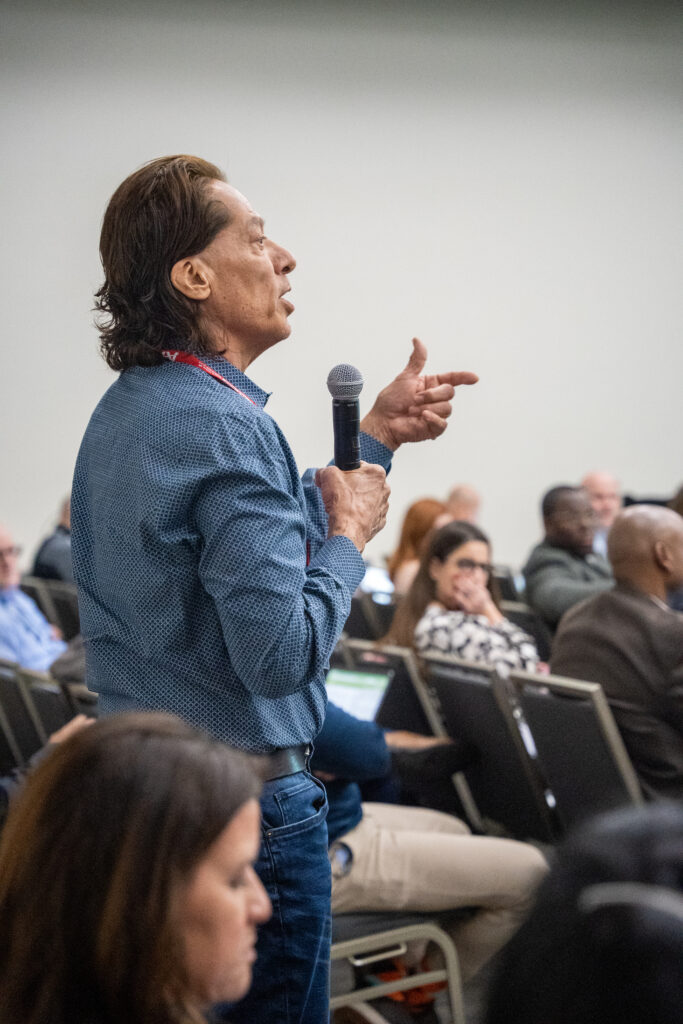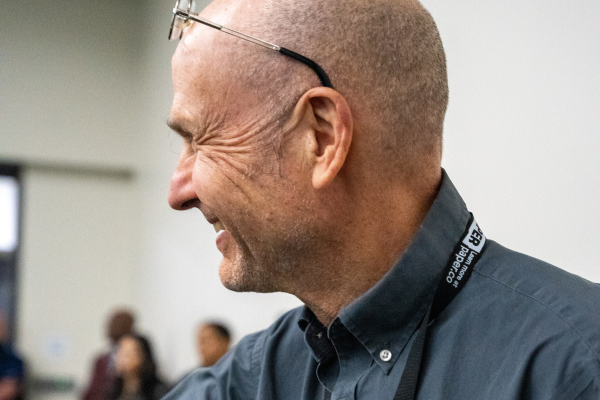Within the past few years, diversity, equity and inclusion has become a national hot topic for local school districts and their communities. Consequently, many school administrators have created DEI leadership positions within their districts, but this has not made progress any easier.

At an AASA conference session on Thursday about the relationship between superintendents and their DEI leaders, Lee Teitel, founding director of the Reimagining Integration: Diverse and Equitable Schools project at the Harvard Graduate School of Education, delivered an instructive message.
With about 90 percent of superintendents white today, many are unaware of how to effectively collaborate with those responsible for diversity, equity and inclusion initiatives, Teitel said.
Darnisa Amante-Jackson, founder of the Disruptive Equity Education Project, joined him in presenting on “Diversity, Equity and Inclusion Leaders and Their Superintendents – Building Stronger Partnerships.”
Through their cross-racial equity work, Teitel and Amante-Jackson have found a few key contributing factors that lead to strong superintendent-DEI leader partnerships: clear DEI goals, clear structures that support those goals and a supportive workplace culture.
Superintendents need to have a clear view of their district’s current culture in order to define what equity means to their district and to create data-driven DEI goals, both on district and school levels.
“A lot of us in this room do not know what DEI is. A lot of us cannot define our vision for equity,” said Amante-Jackson. “To that I say, do not pass go. The definition of DEI is foundational to this work. DEI is long-term organizational change.”
Superintendents also need to make sure that their districts have clear structures which support their DEI leaders and the work they are doing. Having a clear vision of the value of the work done by DEI leaders should be primary.
The work of DEI leaders should aim to address systemic issues through curriculum and professional development with other district leaders, principals, teachers and students.
“Our district recently added a DEI position, so we really wanted to see what other districts were doing in terms of their DEI leaders,” said session attendee Ryan Moran, who is executive director of human resources for Perkiomen Valley School District in Montgomery County, Pa. “We need to craft a clear vision for our DEI leaders.”
To support DEI leaders, superintendents must move away from the assumption that biracial or people of color are the owners of all equity issues and acknowledge that equity is an issue that affects everyone.

Superintendents also must understand that equity work shouldn’t just lie on the shoulders of their DEI leaders. DEI work should be a holistic effort.
The Massachusetts Association of School Superintendents set up a network for the continuing improvement of superintendent-DEI leader relationships.
For Lourenço Garcia, assistant superintendent of equity and inclusion for Revere Public Schools in Revere, Mass., the network has strengthened his relationship with his superintendent, while also ensuring his district is implementing curriculum that serves students.
When tackling equity work, leaders should challenge their own biases and perceptions, while also recognizing the privileges they have, the panelists said.
“Equity work isn’t always a comfortable or easy thing to talk about, but that discomfort is necessary,” said Teitel.
(Eugenie Budnik, a senior majoring in journalism/advertising at San Diego State University, is an intern with AASA’s Conference Daily Online.)

